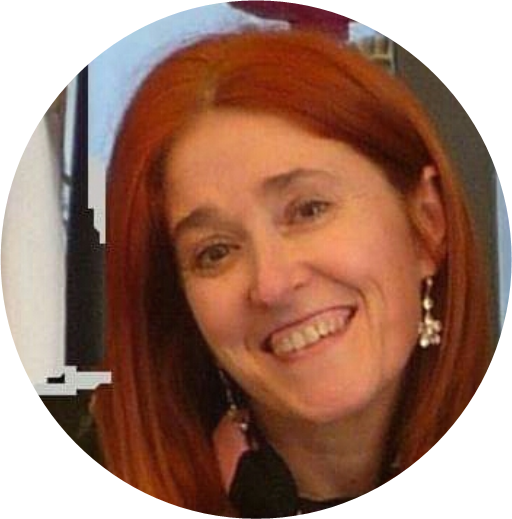
Hello everybody in Europe from Tuscany, Italy!
I’m Annalisa and I have been suffering from cervical dystonia since 1995, when I was 28 years old. Most of you will probably know what cervical dystonia or spasmodic torticollis is. It affects the muscles of your neck and consequently your head and shoulders, with a strong impact on the whole body. In my case the muscles involved make my head bend on the right shoulder and turn to the left. It all happened suddenly at the beginning of February 1995. The muscles in my trunk started to twitch and my neck started to bend. Luckily I didn’t feel pain, but it took me a few months to get a diagnosis: I was suffering from dystonia.
Since then I’ve been through three phases of my life with dystonia. At first, my world was turned upside down, I was shocked and I couldn’t see any way out. At the end of my second hospitalisation botulinum toxin was injected into my “ill” muscles and my neck was unblocked … however it was too much, because my head kept swinging while I was walking. Nevertheless the sense of relief was enormous, even if I had to spend most of my day lying down and resting because of the intense contractions of my muscles. My body required a lot of energy and I needed to relax. Of course I had to leave my job, but luckily I had, and still have, a wonderful family and my boyfriend – later my husband – at my side.
The second phase I lived was the one I would describe as “submission or compliance” to your neurologist and your beloved ones: I tried to do everything I was told to. When you suffer from cervical dystonia your body takes abnormal postures in an effort to rebalance your head. In order to improve this situation I was encouraged to practice yoga and swimming, which helped me a lot: yoga helps you give the right attention to your body, relax and stretch your muscles, just like swimming does.
Another piece of advice or “order” I was given by my neurologist was that I should have physiotherapy in a specialised centre, which would help improve and extend the effects of botulinum toxin. I put myself through that with reluctance, but I soon had to change my mind, as it turned out to be very helpful.
And then came the third phase of my life with dystonia: awareness.
The exercises I learnt from my excellent physiotherapist, the use of bio-feedback and yoga have taught me to listen to my body and try to control my rebel muscles by assuming postures that help keep them relaxed. I started to examine everything I did in a critical way, in order to improve my condition and choose what made and still makes me feel better. As an example, I try to avoid sitting as much as I can, especially when I’m at home. I read, watch TV or work on the computer lying on the sofa.
Since the beginning I have been trying not to let dystonia take over, and despite the moments of frustration I have always tried to maintain a positive attitude, which involved soliciting information from my doctors about everything I was going through and increasing my knowledge about dystonia.
Rather than isolating myself I have always maintained my social relations (even if the question “Have you got torticollis ?” has tormented me more than once a day!) and I have tried different therapeutic options.
For all that I have to thank my family’s constant support and my husband’s patience.
I have also had the opportunity to shape a job around my abilities: I have been running a B&B in Tuscany since 2004 and this job allows me to have several moments of rest during my day but, most of all, I don’t have to go to work, but it’s work that comes to me!
Every three months I have botulinum toxin injections; in spite of their efficacy having lowered, they remain the main treatment; I take less tablets, I practise yoga and go swimming once a week: you need to learn to give priority to yourself and your body, even if that is not always easy.
Joining A.R.D. (the Italian Dystonia Association) was very important to me: I have met wonderful people affected by dystonia themselves, who know what living with dystonia means and how it makes you feel. They have given me the strength and courage to live with dignity. Having the chance to share your problems and not feeling lonely in this daily fight have been fundamental to me.
All the best from Tuscany and if you want to come and visit me, look for A Casa di Lizzy B&B! Ciao!
Annalisa Sironi


